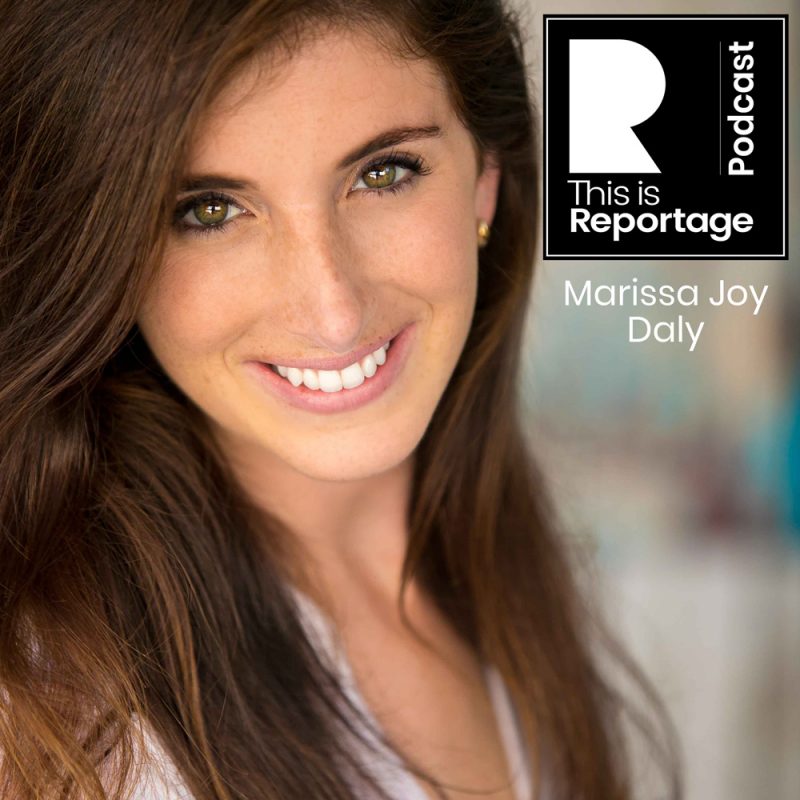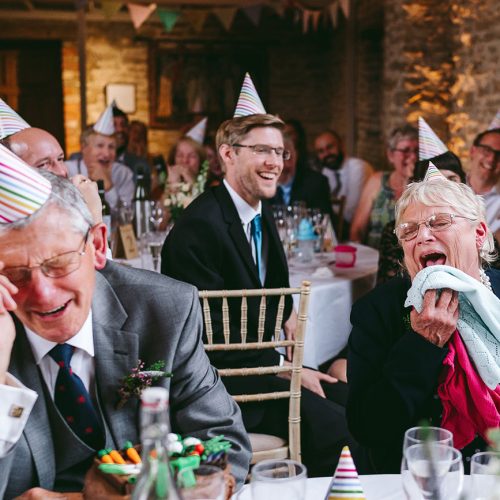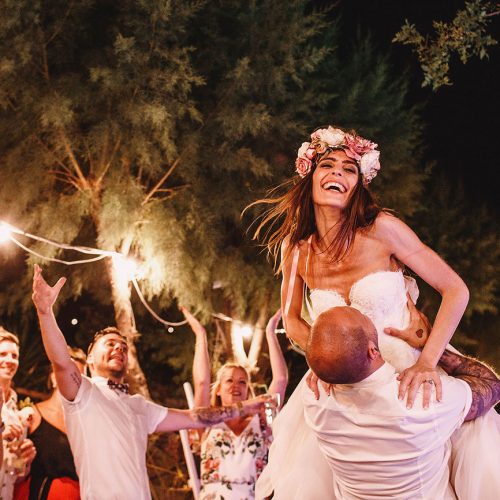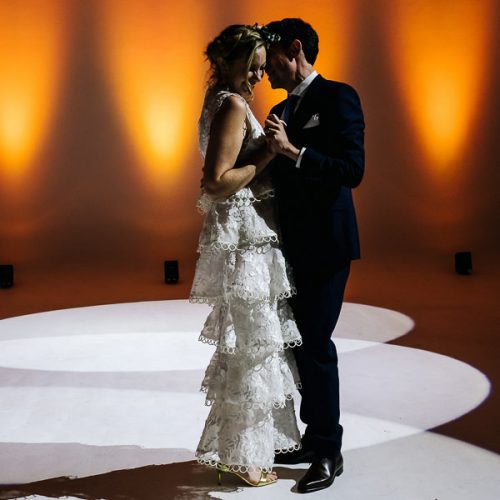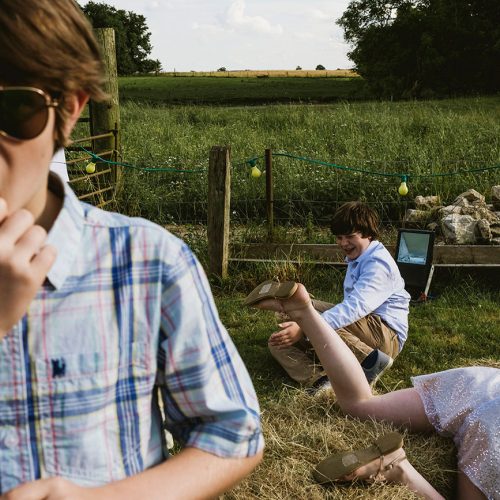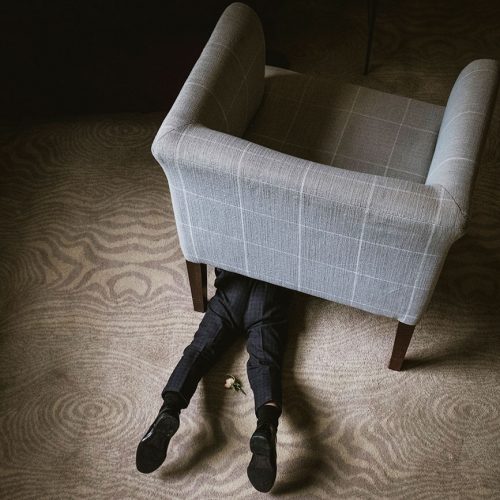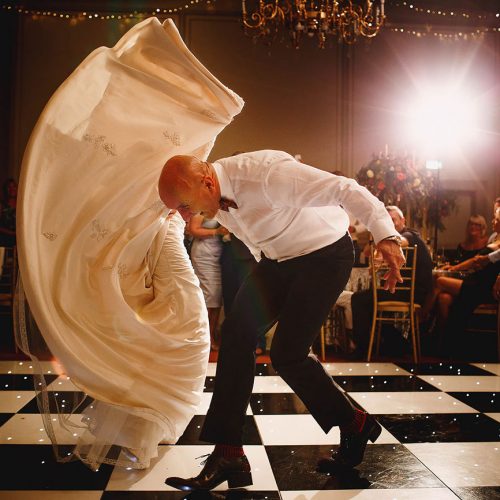Podcast Episode 32: This is Marissa Joy Daly
Excited to bring you the fantastic Marissa Joy Daly for episode 32 of the This is Reportage Podcast! One of the best wedding photographers in the USA, Marissa is an international multi-award winner (including 3 Reportage Awards from us), was one of our judges for Collection 13, and was just totally lovely to talk to. Stick with us today as Marissa talks all about:
- growing up and getting her first camera from her grandfather,
- how a year in Italy was a catalyst to her photography career,
- finding out that someone had stolen and used some of her images (and dealing with that),
- some of her favourite Netflix watches,
- what makes her happy,
- how balance and diversification has been so important for her,
- how she got into event and commercial photography,
- how she’s inspired by other photographers and the power of community,
- how she had Two Mann to photograph her own wedding and what she learned from that,
- her experience of judging for us and tips for submitting,
- how she took one of her specific Reportage Awards,
- why she’s not keen on fruit or working out,
- the benefits of shooting with a second,
- advice on client meetings,
- advice for when you’re in a rut or not happy with your work,
- important attributes a wedding photographer should have,
- and much more…
Listen on iTunes/Apple Podcasts, Spotify, Google Podcasts, YouTube, or below in this post with a full transcript.
Alan Law:
Hey, Marissa, how are you doing?
Marissa Joy Daly:
Hi, Alan. How are you?
Alan Law:
I’m really good. Yeah, really good. Thanks for joining me. How’s things with you?
Marissa Joy Daly:
Thank you for having me. Great! Things are doing okay. How about on your end?
Alan Law:
Yeah, fine. All good here. Yeah. Where are you? You’re in America, aren’t you?
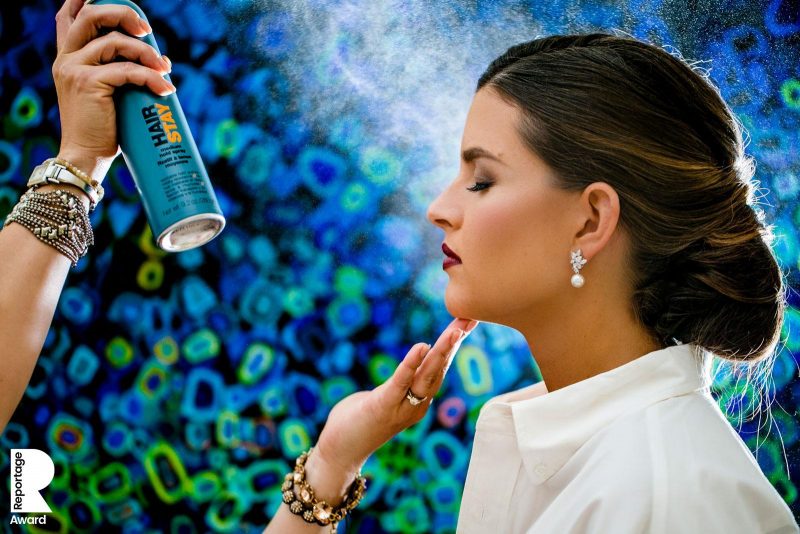
Marissa Joy Daly:
I am in Los Angeles.
Alan Law:
Okay, cool. I’ve never been, I need to go.
Marissa Joy Daly:
Oh, it’s great. I know the time difference between you and I is quite substantial.
Alan Law:
It is. Isn’t it? It’s like eight hours, I think. So it’s yeah, seven o’clock at night here. And is it 11 with you?
Marissa Joy Daly:
That’s right. That’s right.
Alan Law:
It’s mad, isn’t it? It’s so cool. And you sound so clear as well. The wonder of modern technology. It’s amazing.
Marissa Joy Daly:
Isn’t it crazy? I know. Now during the quarantine time we’ve been doing so many Skype calls and zoom calls and Face Time and you know, all of our family are all across the US so this is when the digital age is really nice. You know, it really connects everybody.
Alan Law:
That’s so true. Do you imagine if we were going through this like 25 years ago with dial up internet?
Marissa Joy Daly:
Oh my gosh. I know. Yeah. We’re very fortunate now.
Alan Law:
It’s true. Yeah. And how are things in general for you over there? I mean, in the weddings front, I guess you’re not shooting at all at the moment and yeah. How’s it looking for you?
Marissa Joy Daly:
Yeah I’m starting to plan some… things are starting to slowly open up here in LA. So I’m starting to book a couple of like engagement sessions and family shoots with social distancing, of course. But yeah, it’s been an interesting couple of months. All my weddings for this year have been mostly postponed. And I do a bit of international weddings, so it was kind of sad to see those go away. I was going to go to Cuba. I had one coming up, well it’s not international, but in Hawaii, that was more just because I was really excited to go.
Alan Law:
Yeah, I bet. Awesome.
Marissa Joy Daly:
But you know, my clients have been amazing, you know, they’re very understanding. And at the end of the day, I always tell them, you know, obviously the wedding is a beautiful time, but you’ve met the person you’re going to be with and that’s the most important thing. So yeah, they’re all doing okay. We’re all doing all right.
Alan Law:
Well, that’s good. That’s good to hear. Yeah. Same for me. All my weddings postponed until end of September, but I don’t know, you know if those will happen either, but
Marissa Joy Daly:
I know. Yeah. It’s very hard to predict how it’s going to be and what the wedding industry will be like, you know? As me too, some of my weddings have postponed to October, November, December, and we’re still not sure if those will happen either, you know?
Alan Law:
Yeah. It’s so true. But hopefully next year it’ll be a busy year for everyone
Marissa Joy Daly:
I know. Funny one Right?
Alan Law:
Let’s see. Yeah. Fingers crossed. Cool. Okay. Let’s go right back. What was the young Marissa like growing up? I read that you drove a lot and that the car journeys and maybe not the most fun with you have three older brothers.
Marissa Joy Daly:
I do. I’m the youngest. I have three older brothers. Of course, you know, hindsight’s 20/20. So back when I was in it, it was pretty miserable because I had three older brothers who picked on me, but looking back, those experiences are so valuable. My mom and her family would do humanitarian work and a lot of the Navajo reservations in the Southwest. So we often would drive all the way out there and spend time there. And it was just a beautiful time to be exposed to different culture. You know, seeing the different part of the US was really awesome. And because we were such a big family, we always drove, because it would just be too expensive to fly everybody. And then we had family up in New York and Florida, so we’d fit a lot of driving. And it was nice cause my grandparents were always with us, which was very valuable and
Alan Law:
All in the same car? It must be a big car or in separate cars.
Marissa Joy Daly:
It was. It’s a big suburban.
Alan Law:
Oh, cool. Okay.
Marissa Joy Daly:
Yeah. And that was somehow, always in the third seat. But it was great. You know, I look back on my childhood in a very fond way and my family and I are very close. So it’s been a great time and I was exposed to photography very early. So I feel very fortunate for that as well.
Alan Law:
Oh, how old were you when you got into that then?
Marissa Joy Daly:
Oh, I mean, I can’t remember. My grandfather gave me my first camera. It was an old Minolta. And I can’t remember how old I was. I was very young, very, very young. And I remember I would just go crazy and I would shoot one roll film of one subject, like a butterfly or a flower. And I remember him saying you’ve got to expand, got to keep looking around, up and down all around. And it’s funny, I use that today with even wedding photography. You can’t just see and photograph what’s at your eye level. You need to look up, you need to look down, you have to go all around. And yeah, so it kind of followed me throughout my whole life.
Alan Law:
That was great early life advice.
Marissa Joy Daly:
He was a smart guy.
Alan Law:
Yeah, definitely. Cause I, I say that with documentary photography as well, how everyone sees the world at the same, you know, eye level. So if you can shoot at different angles and different perspectives and it makes such a world of difference, doesn’t it?
Marissa Joy Daly:
It does. And you know and I think a lot of people gravitate towards those images because it’s different, you know, it’s not what they see with their own eyes. Yeah. And then I kind of, during my high school experience, I was interning with a wedding photographer and this was like right on the cusp of when wedding photography was getting a little bit more interesting. You know what I mean? It was maybe 15 years ago or so, I’m getting old and I remember I just, to me, she saw things so differently and started really pushing the envelope when it came to creative photography. And I loved that idea. I loved it. So I kind of carried that my college years and I could just keep going and going, but yeah, it was great.
Alan Law:
No, that’s cool. It’s really interesting. At college did you study photography at all or was it something different or?
Marissa Joy Daly:
So I went to Boston College, which I majored in human development, like psychology for child and adolescent development. And I minored in photography and I really kind of had a little bit of an internal struggle when applying for colleges cause I love photography so much, but I wasn’t sure if I wanted to go to a program that was solely just photography. So I went back to my mentor, Abigail and I asked her, you know, she went to NYU and I was like, well, what do you think I should do? And she said go to a liberal arts school ‘cause you can always go back to specializing in studying photography, but you know, getting that well-rounded education will help you with your photography as well. You know? And so I did that. I minored in photography and I spent a semester abroad in Florence, Italy in my junior year. And that kind of solidified that I wanted to do this professionally.
Alan Law:
Oh really? Okay. What happened in Italy then that made it so strong in your mind? That’s awesome by the way that you had a year in Italy. I think that’s so cool.
Marissa Joy Daly:
And I mean, does anyone have a bad time in Italy?
Alan Law:
That’s so true. I’ve only been once. We went to Rome last year and it was amazing.
Marissa Joy Daly:
Oh yeah. I mean, I fell in love and I actually fell in love with street photography there. So I don’t know. I think I just got buried into like the culture and the vibe and I was shooting all the time and I went to Venice for Carnivale and they had all these beautiful, it was just so beautiful and so rich and I loved being able just to capture that, you know, to be there and to visually show how it made me feel. And I remember I was in Florence and I called my parents and I said, mom, dad. And they were like, what’s going on? I said, I just want to let you know, when I graduate from school, I’m going to be a photographer. And I remember my mom was like, well, we already knew that we were just waiting for you to come around to it. And yeah, those words meant so much because they were so supportive of, you know, my creative journey and you know, my dad’s a physician but my mom’s a teacher and she’s always been very creative. My grandfather was a classical clarinettist. So they always really helped cultivate my creative side and very encouraging and supportive. So I was very, very lucky in that respect.
Alan Law:
That’s cool. Isn’t it? That’s really, really great. That’s really important. When you were in Italy, do you speak Italian?
Marissa Joy Daly:
I mean, so I grew up learning Spanish and then when I went to Italy, you know, I took Italian and luckily those languages are pretty similar. And so I started speaking Italian fairly well. And then when I came back, I got Spanish and Italian confused so much, but I feel like I kind of just like nixed out both of them which is kind of funny, but I went through NYU’s program and I was mostly with Americans. So I wasn’t with a family. I wasn’t as immersed in the language as I would have hoped. But I would love to get back into it. Italian is just so melodic. It’s such a beautiful language.
Alan Law:
Oh, it’s cool. Isn’t it? Yeah. Did you have much ice scream when you were there? I just loved the ice cream in Rome. It was amazing
Marissa Joy Daly:
Gelato. I ate so much. Thank God. I walked everywhere. My apartment was on like the seventh floor and thank God for that. Otherwise I probably would’ve come back 15 pounds heavier. Everything was just so fresh. You know, the ingredients are fresh and the gelato. Oh yeah. I mean, it was just a beautiful time.
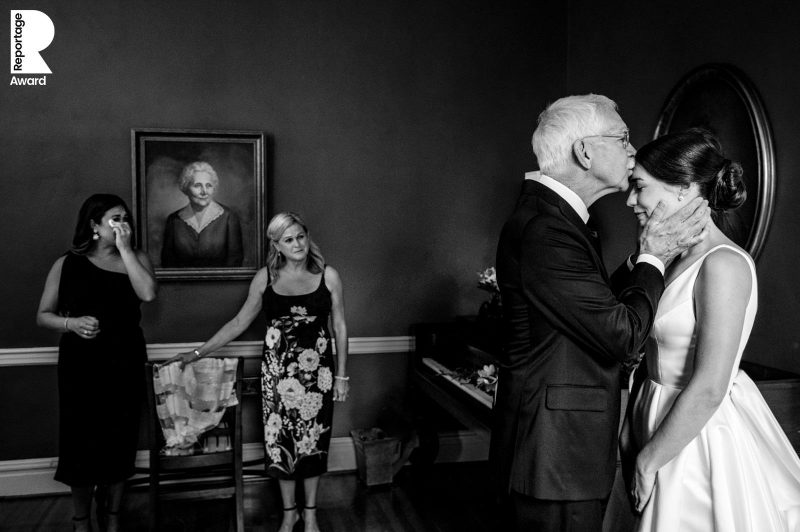
Alan Law:
It is amazing, isn’t it? And have you, have you been able to go back and shoot a wedding in Italy at all? Have you ever shot there?
Marissa Joy Daly:
I haven’t and that is on my list. So yes. Hopefully somebody soon will bring me out there. The closest I’ve gotten there is I shot a wedding last year in Switzerland months ago.
Alan Law:
Nice. I’ve shot one though, as well, one in Switzerland, but in Verbier. And yeah, it’s amazing.
Marissa Joy Daly:
And that is just breath-taking. It’s beautiful. You can’t take a bad picture.
Alan Law:
Well, I’ll tell you, I can. I can definitely. So from that realization, that proper realization that you wanted to be a photographer, how did you get round to like shooting your first wedding? How did that happen?
Marissa Joy Daly:
So, while I was in college every summer, I would go back to North Carolina where I was from and I would second and third shot shoot weddings with that mentor of mine. Her name was Abigail Seymour. And then one of her friends, her name is Tracy Arny. Also would kind of take me under her wing and I will shoot with her a lot. So over the years I was starting to make a name for myself locally and when I graduated, I moved back home. I just saved money for a while by starting my company and I just went around to different vendors, letting them know I was there and I was happy to shoot for them. And you know, just like any other beginner photographer in a new place, I just said, I’ll, you know, shoot your headshots for free or anything you want to send to me, I’ll shoot for free, just so I was getting my name out there. Yeah. And so I actually booked a decent amount of weddings my first year and then within a couple of months, I ended up moving to Washington DC and kind of went on from there.
Alan Law:
Oh, that’s cool. Cool. So how old were you when you shot your first wedding?
Marissa Joy Daly:
My first paid wedding? I had just graduated college, so I must’ve been 22.
Alan Law:
Wow. That’s pretty young. Were you nervous at all? Or I guess you weren’t.
Marissa Joy Daly:
Yes, of course I was nervous! But I’ve always been really lucky. I have had really, really sweet clients. And all my clients have really prioritized photography, which, you know, as you know as a photographer is really a blessing. So they really valued me as an individual and as an artist. So they always made me feel very at ease. But yeah, I’m like a lot of, or I should say some photographers have and some haven’t, but I have only been a photographer. I haven’t had another job. So it’s been cool seeing just from my little time being a photographer, just the evolution of photography for weddings has changed tremendously.
Alan Law:
That’s so true. Yeah. What would you do? It’s funny how you’ve never been anything other than a photographer. What would you do now if you didn’t do wedding photography? What do you think you would do if you weren’t a photographer at all?
Marissa Joy Daly:
So while I was in school, like I mentioned, I was doing human development for adolescent and child development so I actually was as an undergraduate, I was a researcher for a psychologist in a graduate program and was very much toying with the idea of going to BC for psychology for grad school. So I think I would probably go back into that. It’s something I feel very passionate about and perhaps even now with what’s going on in our society, maybe emphasize a little bit more on human rights and human rights violations and, you know, just changing everything, hopefully.
Alan Law:
That would be cool… mad times at the moment, that’s all it is. Mad times.
Marissa Joy Daly:
It is. Yeah. But you know, in some ways it’s good because it means that hopefully things will change.
Alan Law:
That’s so true. Yeah, it’s true. So I think we’ll just go back to photography. I think I heard that you’ve been in the position where someone has stolen some of your images and used them on their website, haven’t you, which is just awful. It’s awful when it happens.
Marissa Joy Daly:
Yeah. And you know, a lot of. I’m sorry, go ahead.
Alan Law:
Oh, no, I’m just going to say how did you actually find out then, what happened?
Marissa Joy Daly:
So I was shooting a wedding up in Portland and a photographer I admire very highly, Lindsay Stark, was helping me shoot the wedding and we were chatting at some point during the wedding about copyright infringement and people stealing images. And we were talking about doing the reverse searching on Google. So essentially you just take your image and you plop it into the search tool and it will pull up anywhere your image appears for the most part. And I was heading back from New York from an event going back to LA and I was like, Oh, you know, I’ll give it a shot. And so I started taking my more well-known photographs and plopping them in and seeing if anything came up and it was a red eye too. So it was very dark on the plane. And all of a sudden I saw my image pop up on this photographer’s site. And it’s funny, cause like when it happens, you almost want to like nudge the person next to you being like, oh my God, look at this, look at this. But obviously it’s a red eye. They’re sleeping where they are and they don’t care. So I went to this individual’s website and I just started seeing that this person was indeed a wedding photographer and was using multiple of my images all across his social media and it was his, you know, his website, his Yelp reviews, wedding wire accounts. It was pretty extreme. Yeah.
Alan Law:
It’s awful. Isn’t it? It’s so awful… in one way it’s quite good. It’s like, you’ve made it if someone’s copying it.
Marissa Joy Daly:
I suppose so. Yeah.
Alan Law:
But it’s awful. What did you do?
Marissa Joy Daly:
Yeah, I mean, like it’s very much like a violation. You feel violated in a lot of ways. And you know, it’s not only the work that I poured into creating those images, but it’s also, you know, the documentation of my clients that I call friends and they’re appearing on some other person’s site. So it just felt very, very bad to me. So I contacted an attorney and had him draft an email to send to this individual saying that they had to take down all the images and stuff like that. And over a couple of months it was a lot of back and forth. Finally, we got that person to take down all those images and, you know, that’s why I always urge photographers to monitor their work and keep an eye out for those who are, you know, fraudulently displaying them, you know. And it’s also like deceiving those clients, like his clients, which, you know, and there was like a huge discrepancy between this person’s personal work and my work. Yeah. It’s like someone who was just maybe starting out and yeah, it was a long battle, but luckily we were able to get that over with.
Alan Law:
That’s awful. It still took a few months though. So even just like the first email or letter, you know, a normal person will just take it down straight away, but they didn’t.
Marissa Joy Daly:
It’s funny because I think initially they said that they had purchased the images or something and this person was also using other professional photographers’ work. So it was mostly mine, but I could tell that I couldn’t identify the other photographers, but I could tell there were other photographers’ images being used and that’s why it was also like you know, I felt a duty of an act upon my other fellow photographers to make sure that this guy, this person took them down. So yeah, it was yeah, you would think that they’d be like, okay, I’ll take ’em right down but it actually took quite a bit of time and back and forth.
Alan Law:
Oh, it’s awful. I mean, it’s only happened to me once, quite a few years ago, once as far as I know it anyway, and someone just messaged my Facebook page saying, do you know some of your images are being used on this other photographer site? And it was awful. It was someone who had been following me on Instagram, you know, who had been nice and they were just using my images. It was pretty insane.
Marissa Joy Daly:
And did they take them down?
Alan Law:
Yeah. They were in Belgium. And luckily my father knows someone who works very randomly in like the Belgium government or something. So just got them to send a quick kind of message and they were down within like 24 hours, I think it was. Yeah.
Marissa Joy Daly:
Terrible feeling though. Huh?
Alan Law:
It is, it’s awful. And there’s never an excuse for it. People know that they’re doing wrong by doing that.
Marissa Joy Daly:
Yeah. Yeah. Well, I’m glad that you guys, you were able to get it down so quickly. Yeah. This person kept kind of defending it and I’m like, there’s just no defending it, man. I mean you gotta take those pictures down. Yeah.
Alan Law:
Oh anyway, let’s change take and go on to a happier subject. So let’s change tack completely. Are you a telly person? Are you watching any good Netflix series at the moment or anything?
Marissa Joy Daly:
I am. I love TV. Because you have children as well, right?
Alan Law:
I do. Yeah. Five and eight year olds.
Marissa Joy Daly:
Oh, okay. There you go. Yeah. So my son’s almost 18 months. So for this past, you know, year and a half or so or even when he was a new-born and you know, I was up all night nursing or, you know, I would have to stay awake so I watch a lot of Netflix. So I went through Shitt’s Creek, which I really enjoyed just a nice light-hearted comedy. And then recently my husband and I started rewatching The Office.
Alan Law:
Oh, the American version or the British version?
Marissa Joy Daly:
The American version, Yeah. And we started watching Arrested Development again too. So I don’t know why I’ve been in a kick of rewatching things we’ve already seen, but
Alan Law:
We have started doing that as well. It’s funny, there’s so much new content out there and yet you end up… It’s so funny.
Marissa Joy Daly:
We watch some new things. Of course we watched Tiger King. Like everybody it’s funny. You know it was so funny because everyone has such a response to it about how crazy these individuals were, which obviously they… Have you seen it?
Alan Law:
Yes. Yeah. Mad isn’t it?
Marissa Joy Daly:
It’s totally crazy. But I’m such an animal person that the entire time I’m just focused on the tigers. Like that’s the sad part of the whole thing.
Alan Law:
It is sad. That’s true. Did you hear this week How Carol Baskin has been awarded the zoo now then it’s going to be hers?
Marissa Joy Daly:
Oh really?
Alan Law:
Yeah. For real, the judges said, yeah. So she’s going to own it now. It’s going to be hers. So yeah.
Marissa Joy Daly:
Wow. Yeah that’s some story Right there. Isn’t it?
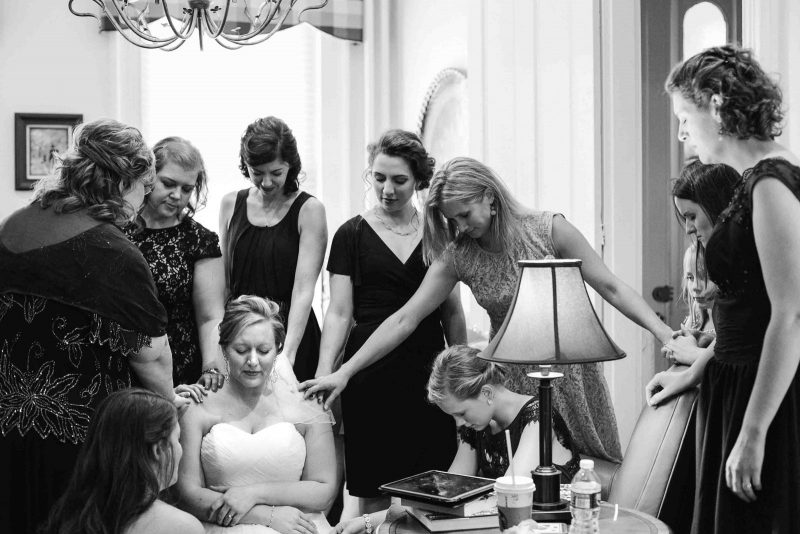
Alan Law:
It really is. Yeah, it is funny you mentioned the American office. I need to watch that. Cause we’ve only just recently, like two weeks ago finished watching the UK office. So we watched that for like the first time really. Have you watched the UK version at all?
Marissa Joy Daly:
I started it. And then for some reason I can’t remember why I didn’t finish it, but yeah, I had seen a couple of episodes. But yeah, I need to get back into that. What else are you watching?
Alan Law:
We’re watching Dead To Me. Have you heard of that or seen that?
Marissa Joy Daly:
I watched the first. It’s only two seasons. Yeah.
Alan Law:
Yeah. I think so. We’re only halfway through the first series, but really liking actually.
Marissa Joy Daly:
Yeah. Yeah. I watched the first season, but I haven’t quite started the second one yet.
Alan Law:
Yes. Okay, cool. Well, those are good recommendations if anyone’s looking for something to watch at the moment. What is the first thing or things that come to your mind when I say what makes you happy?
Marissa Joy Daly:
Hmm. My family, especially now during quarantine which really changes our perspective of a lot of different things. It’s been tough for a lot of people, but I do try to stay on the bright side and, you know, being able to spend so much time with my son and you can attest this to when you have children, you know, it’s such a privilege to see a child grow and become bigger and smarter and you know, they start to speak. It’s just amazing to see. It sounds very colloquial, but just to see the world through a child’s eyes, it’s really beautiful. It really is. So that makes me very happy. My family. What I do makes me very happy.
Alan Law:
That’s cool. Isn’t it? We’re so lucky to be doing something that we really enjoy.
Marissa Joy Daly:
It is, you know, and I feel very lucky to do what I do and it’s, it’s tough with the wedding industry because I’m not going to say that there are days where I wake up and I’m like, Oh, I just don’t want to do this anymore. Or I feel burnt out from weddings or you know, there are days where you just don’t like your job. And I think it’s also okay to say that, you know, I know people are very into saying that they’re a hundred percent passionate about wedding photography and it consumes their life. And I say, you know, that’s amazing, but I mean, I can definitely say that there are days or months where I’m like, gosh, I just need a break, you know?
Alan Law:
Oh yeah, I totally get that. And I think you’re so right there, how it is really important to say, because for maybe people from the outside looking in, we can make the industry appear like it’s all roses and gold pavements and things in it. Obviously it’s very good, but there are downsides and hard times as well. There really are.
Marissa Joy Daly:
Absolutely.
Alan Law:
And especially at the moment, it’s not a good time to be in the wedding industry really, or the event industry in general.
Marissa Joy Daly:
Yeah. Yeah. And you know, you’re not just a photographer. I mean, I can’t speak for every photographer out there, but you’re not just a wedding photographer. You’re a planner, you’re a therapist, you know, you’re helping out on the day. You know, for me, I develop really special relationships with my clients and you know, it spans over a year planning, you know, sometimes. And then if, you know, if you’re lucky enough you can photograph their children or, you know, you just see them grow as a family as well.
Alan Law:
No, that’s cool. Isn’t it? To be able to do that. Yeah, definitely. Have you hit a specific point yet, you know, maybe where you have felt like really exhausted with what’s going on, like feeling burnt out at all?
Marissa Joy Daly:
Oh, a hundred percent. Absolutely. I’ve had that a couple times and for me, I had to diversify a bit what I do. So right now I shoot, I used to shoot. I mean I would shoot 30 to 40 weddings a year. And it was just too much. I was spreading myself too thin and I didn’t like not being able to be so connected with my clients. So I’ve been able to kind of find a healthy balance for me, you know, it’s what works for me. And now I shoot maybe 10 to 12 weddings a year. And in the gaps of that, I shoot here locally in Los Angeles. I do a lot of work for a lot of the Hollywood studios with like Netflix and Hulu and Amazon. Yeah. And so that kind of mixes it up for me a bit and it’s a different way of being creative and it’s a whole different type of photography, which I think keeps my brain a little sharp, which is good.
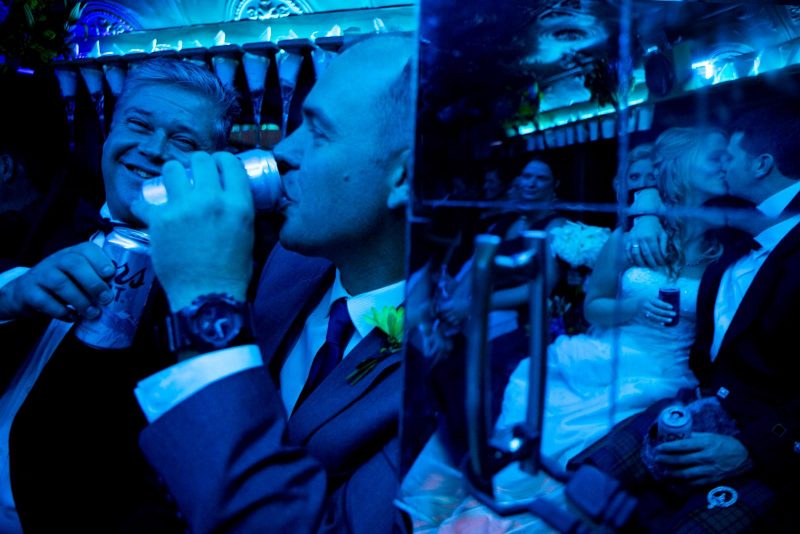
Alan Law:
That is cool. How did you get into that kind of more corporate or commercial kind of side?
Marissa Joy Daly:
Yeah, it was funny. I kind of fell into it when I moved here. So my husband and I moved here about six years ago and a sister of my college friend needed a photographer for an event they were doing and the singer Usher was kind of like hosting it. And she was like, I can’t pay you for it, but it’s great exposure. And you know, and I was like, I just moved here. I have no problem just shooting something for free and just kind of showing my worth you know, it was just, it was a fun thing to do. So I did it. And the agency that kind of produced the event I guess got a hold of my images and loved them so much that they ended up hiring me for all of their future events. And they kind of are affiliated with a lot of the premiers for different TV shows and movies. So I do a lot of those things, a lot of the event decor, which is really, really funny because they liked my detail work so much. And I attribute that a hundred percent because I shoot details at weddings.
Alan Law:
Yeah, that’s so true. That’s cool though, isn’t it? How that has gone hand in hand.
Marissa Joy Daly:
They liked you know, my other, I would say competitors for these events are a lot of Getty photographers who are… I don’t want to say they’re not creative. That’s not very nice, but they’re very by the book, you know, they’re shooting very by the book, front flash, right in your face, you know, they’re not getting down on the ground and lighting cool things with gels. And that’s just not really what they are there for too. So I get there before the event begins, I shoot a lot of details, I shoot the event which is great. It’s basically just shooting a really nice, expensive reception.
Alan Law:
Oh okay. That sounds good. Yeah. That sounds fun actually.
Marissa Joy Daly:
It is. Yeah, it’s nice easy work and I’ve got to meet a lot of cool people.
Alan Law:
That’s cool. And I think that diversification is just so great for kind of yeah, not getting burnt out and not just doing one thing day in, day out, but also you’re diversifying your kind of income streams as well, which is very important.
Marissa Joy Daly:
It is. It definitely is.
Alan Law:
So I think that’s a really, really good idea. So that’s cool. So you photographed Usher. I guess you’ve photographed maybe some more famous people then things now?
Marissa Joy Daly:
Oh yeah. Yeah. I would say probably the coolest thing, I’ve done a ton of premiers and stuff, but the coolest thing I’ve done over the past three years I’ve shot Jeff Bezos. He has a holiday party every year in his LA house, which has only about like maybe 150 guests, but they’re all like A-list actors and stuff like that. And I don’t normally get star struck, but I saw Barbara Streisand I kind of got like really excited.
Alan Law:
Oh, that’s very cool. Yeah. That’s very cool.
Marissa Joy Daly:
Oh my God. It’s Babs. So yeah, it’s very cool, but you know, all those individuals tend to be very, very nice. I think they’ve, they’ve made it so they don’t really have much to prove. And I think they’re used to being around photographers so they’re often very, very kind.
Alan Law:
Oh, that’s cool. That’s lovely to hear. Because I guess a lot of people would maybe expect the opposite, I think, in the way the media is portrayed celebrity these days. So that’s cool. has there been a specific turning point in your wedding, photography career, you know, maybe something perhaps a certain wedding or a certain award or, or something that’s had a major impact on your career?
Marissa Joy Daly:
Yeah, I mean, I would say for me other photographers inspire me quite a bit. And I have spent a decent amount of time and money in workshops and just seeing how different photographers work and how they, you know, both on the business side and on the creative side. And I think as photographers, we always have to continue that education because we’re never going to know it all and we’re never going to be perfect. So for me over the years I’ve been really blessed to like get to know some great photographers and be involved in some amazing communities. Right now I love being in the Fearless community, just seeing other people’s work and how they push the envelope with the creativity. I mean, it’s beautiful to see what, you know, people come up with and your community. I mean, yeah, it’s all over the world. It’s very inspiring. In terms of a specific moment or Ooh, wedding, I don’t think there was. I guess there was a wedding a couple of years ago. Actually we shot her sister’s wedding. And there was a moment they have it in their tradition before the ceremony, their family kind of gathers in prayer and they’re such a sweet family. They allowed me into that moment. And it’s funny when I compare the images. So they did it at her wedding, which was maybe seven years ago or so and then last year I shot her sister’s wedding and they had a similar moment. And I’ve been kind of tickled to see how I have changed as a photographer because I remember the images from that first wedding. I was a little bit further back during that moment. I wasn’t quite in it. I think I didn’t want to interrupt the moment and, you know, as a photographer, you’re always struggling with how close can I get? And then the images from last year’s wedding I got in there and they trusted me to do that. And I think, you know, that’s what you’re getting paid for is to get in there and to capture the emotion. And fortunately enough, a series of those images have actually gotten a lot of recognition, which has been beautiful. But it’s been nice to see myself evolve over a similar moment over the years, which has been very cool and I feel very privileged to be able to be a part of those moments. I mean, I end up tearing up as well. It’s just so beautiful.
Alan Law:
Oh, that’s cool. Oh great. It’s so important to be so empathetic. I think that’s so cool. You’ve been able to experience the very similar situation with the same family from years apart.
Marissa Joy Daly:
Yeah. They’re very cool.
Alan Law:
Yeah. That’s really interesting. Oh, that’s cool. And you were married yourself not so long ago I think. And it wasn’t, it was Two Mann. Wasn’t it? Lenny and Erika who shot your wedding?
Marissa Joy Daly:
Yeah. I know. How amazing was that?
Alan Law:
That is cool. Very cool. Yeah. So what, what was that like being on the other side of the camera, you know, as a wedding photographer yourself as well?
Marissa Joy Daly:
It’s amazing. I mean, they are extremely beautiful people. They’re very creative. Just to see how they work is just awesome. It’s funny because obviously I’m getting married. It’s a beautiful time, but I’m also like, Oh my God look where she is. She’s like under the table, like, you know. But it’s funny cause they get… being on the other end of it I have a whole new appreciation for everything that goes on, both for the bride and then also for the photographers. And so it was a very valuable experience for me, but it’s interesting. Cause you know, when you’re in the moment you’re getting married you’re actually not paying attention to how close they are getting to you. And yeah, and it was always, you know, I think everyone, like I mentioned earlier, they were very apprehensive about getting too close. And you know, everyone knows that Lanny and Erika get close. And they got close and I didn’t take my eyes off my husband. Like it didn’t take me out of the moment. And obviously they got just spectacular photos for us. And I also want to give a shout out to our videographers because our videographers blew us away. I mean, I have never seen such beautiful cinematic work in my entire life.
Alan Law:
Who are they?
Marissa Joy Daly:
They are called Maru films, M A R U and they’re actually out of Amsterdam. They’re a husband wife team and they are just amazing people and they flew all the way out and helped shoot our wedding. And what they were able to put together. It was just absolutely gorgeous. It was just beautiful. I have a whole new appreciation for videography.
Alan Law:
Oh, that’s cool. Just like with photography, I guess, the level of videography has just got so much higher and higher. Isn’t it? It’s amazing now.
Marissa Joy Daly:
Yeah. It’s amazing to see the evolution of that as well.
Alan Law:
So did you know Lanny and Erika before they shot your wedding or did you just approach them as a potential client or did you know them or?
Marissa Joy Daly:
I did not know them personally. No, you know, I think I knew them in the sense of like, you know, the online community. But I never personally met them. I had always been obviously huge fans of their work. And it was definitely tough to choose a photographer because I mean, there are just so many good ones and I actually just had almost my husband choose. I was like, listen, these are the ones that I love. Let me know what you’re gravitating towards. And yeah, they were kind enough to shoot our wedding and be a part of our whole wedding weekend. We did a day after session with them, which I started incorporating into my own work for my own clients. Yeah. So some of the things that they did for us, I was like, oh my God, that worked really well for me. I’m going to put that in my business agenda, you know, so yeah, it was very valuable experience. Both obviously getting married was great. Also seeing them too.
Alan Law:
Oh, cool. Great. Oh, that’s great. That’s really cool. That’s really cool. Yeah. And you were a judge for us quite recently, only a couple of months ago in collection 13. Yeah, I thank you again for judging Cause I there’s a lot of images to look through. Did you enjoy it?
Marissa Joy Daly:
I did. First of all, it was such an honour. It really was. And again, you know, like your community it’s international, you’re seeing people’s work from all over and different cultures and different traditions that people were photographing and it really changed the way that I now submit my photos to contests and awards because yeah, it really changed, you know, you it’s overwhelming to see, you must take for granted how good people are.
Alan Law:
I know, it is amazing. Yeah. Amazing.
Marissa Joy Daly:
You’re getting overwhelmed with just like top notch photography. And you almost feel bad like taking out one cause it’s just not, you know, not perfect in a way, and I can hear myself saying like, well my photos aren’t perfect and I’m submitting, you know what I mean? Yeah. But I loved being judged. I loved being able to see the breadth of people’s work. Yeah, it was a great experience. Thank you for having me.
Alan Law:
No, no, thank you. Okay. I really value your time and expertise. It’s awesome. Yeah, as a judge yourself, do you have any kind of tips to help people like submit at all? It’s very subjective, but yeah. What’s your ideas?
Marissa Joy Daly:
Yeah. First of all, it is so subjective, you know, but what moves me, you know, may move somebody else in a different way. But for me, you know, what I never really thought about as I was submitting is, you know, we all have beautiful moments that we capture. So for example you know, the groom seeing the bride come down the aisle for the first time and the emotion that he’s going through, you know, there are certain times of the wedding that happened for everybody. So, you know, you’re in charge with how to make that different. I saw a million photos of the bride shedding a tear, you know, but, but why like how is that one different from all the other ones I’m seeing, you know, what makes that photo stand out? And sometimes it’s the way it’s shot. Sometimes it’s the postproduction, you know, how they’re edited, how they’re cropped, deciding what you’re putting in that frame is very, very important. Sometimes if people would just crop in a little tighter or shift your focus a little bit with some dodging and burning. So yeah, I would just think about, you know, the moments that you’ve captured, although they are extremely special to you Cause they’re your work, they’re your moments that you’re capturing, you know, we’re seeing a lot of the same moments, so how can you make that stand out?
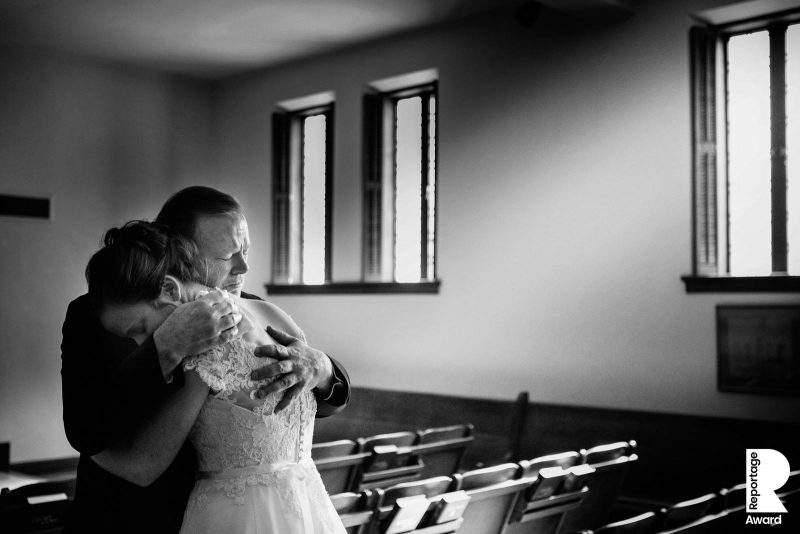
Alan Law:
Yeah. That’s great advice. That’s really, really great advice. Thank you. Yeah, that’s cool. One of your Reportage Awards actually personally because you’ve won some from us, one of yours which I think is absolutely timeless appears to be what looks like the bride and her dad, I think in a really emotional embrace the left of the frame and I just love the composition. The light, the moment, you know, altogether makes such a beautiful image. Could you tell us about that one, what’s happening?
Marissa Joy Daly:
I love the picture. I mean, I took that one several years ago actually, probably at least five years ago. That photo was right before we’re in the church, right before he was going to walk her down the aisle. They kind of went out into this little chapel on the side and I wasn’t actually close enough to hear what was going on, but they had a little moment and you know, that was his little girl that was his baby girl and he just held onto her and his face and the way that the light was coming through the window, I’m giving myself goosebumps. Kind of narcissistic, but you know, I love those. Those are the moments that we look for, you know, and to be able to witness that, to capture that it was a very emotional wedding. The groom’s mother was very sick. So there was a lot of emotion during that day. And yeah, that was just, and it’s funny. I didn’t even know that they were going into that room. I kind of just followed them. That’s why I wasn’t actually very close to the, to them as you know, in terms of distance, it was kind of a little bit further back from the moment which I like, you know, for me it worked that way.
Alan Law:
It’s a beautiful image.
Marissa Joy Daly:
Thank you. Because I literally was kind of like peeking in to see what was going on.
Alan Law:
Oh, it’s so cool. It’s great that you followed them to get that. I mean, if you hadn’t just trusted your instinct to follow them, you wouldn’t have got it. Yeah Cause it is like an empty room. Isn’t it? You can see that there’s no one else there. It’s there.
Marissa Joy Daly:
It’s not the main chapel. It was this little small one on the side.
Alan Law:
It’s beautiful. It’s just so, so good. And then if anyone’s listening, you know, driving or running or anything, if you head to the site I’ll include that image so you’ll be able to see which one we’re talking about there. Yeah. It’s awesome. Yeah. Very, very cool. Let’s change tack again slightly. Let’s change tack. If you could choose one day in your life to live over and over again, like Groundhog Day, have you seen Groundhog Day?
Marissa Joy Daly:
Of course. It’s like I’m living it right now.
Alan Law:
Yeah. It’s like that, isn’t it? This is coronavirus times. It is like that. Yeah, but if you could choose one day in your life to live over and over again, what day would you choose?
Marissa Joy Daly:
Oh, man, it’s funny. I’m sure people would say like, Oh my wedding or the day my son was born, but that hurt. So I’m not going to. I would say, you know, it’s not a specific day, but growing up in North Carolina, my parents have like a little cottage on a Lake and it sounds very stupid to say, but it’s kind of like my happy place. It’s very peaceful. And, you know, we spent a lot of some summer days there and it’s just beautiful, you know, we would spend the day just like out in the boat and swimming and just sitting on the dock and I don’t know. And at night, like you could see all the stars. I would do one of those days, I think you know, having my family there, you know, just being in my happy place.
Alan Law:
That’s really nice. Have they still got that place?
Marissa Joy Daly:
They do. They do. They don’t go there quite as much because they actually moved down to Florida, but they’re still hanging on to it.
Alan Law:
Oh, that sounds lovely. Yeah. I wish I could give you that ability to just live that over again.
Marissa Joy Daly:
I Know. Yeah.
Alan Law:
Is there something that you really love that most people seem to hate?
Marissa Joy Daly:
Let’s see.
Alan Law:
It’s a straight or you could reverse it. Anything that you hate that most people seem to love
Marissa Joy Daly:
That I can definitely do. Yeah. Some unpopular things. I don’t like fruit, which sounds super weird. I know. I don’t like fruit. I don’t like the consistency of fruit. I will actually eat bananas. That’s the only thing, I guess, raisins, if you consider that it’s a dry fruit, but that’s it. Yeah. So it was definitely funny having a child because my husband was like, you are going to buy fruit for him. Right? I was like, yes, I’m not a terrible mother. I will buy him fruits.
Alan Law:
That’s funny I wonder where your fruit aversion comes from.
Marissa Joy Daly:
I don’t know. I don’t know. Yeah. I’m not a huge fruit person. Oh actually I thought about this question Cause I think something on Facebook was going around about that like a couple months ago and I was thinking about it. I’m trying to remember the other ones. I don’t like working out exercise.
Alan Law:
Oh really? No fruit, no exercise?
Marissa Joy Daly:
No, I’m a very healthy person.
Alan Law:
Quite funny, but you have to be fit to be shooting weddings really, haven’t you? You must get exercise. As a mother, you’re getting exercise all the time.
Marissa Joy Daly:
Oh yeah. He keeps me on my toes. He’s running around. But in terms of like cardio exercise, I absolutely hate.
Alan Law:
Yeah I hate running.
Marissa Joy Daly:
I can’t do it. I can’t do it. Yeah. Or like the elliptical when you’re like Stairmaster and you’re climbing, you’re climbing and you don’t get anywhere. I can’t do it. Yeah.
Alan Law:
Yeah. I’m with you on that, yeah.
Marissa Joy Daly:
I can’t think of much more right now, but.
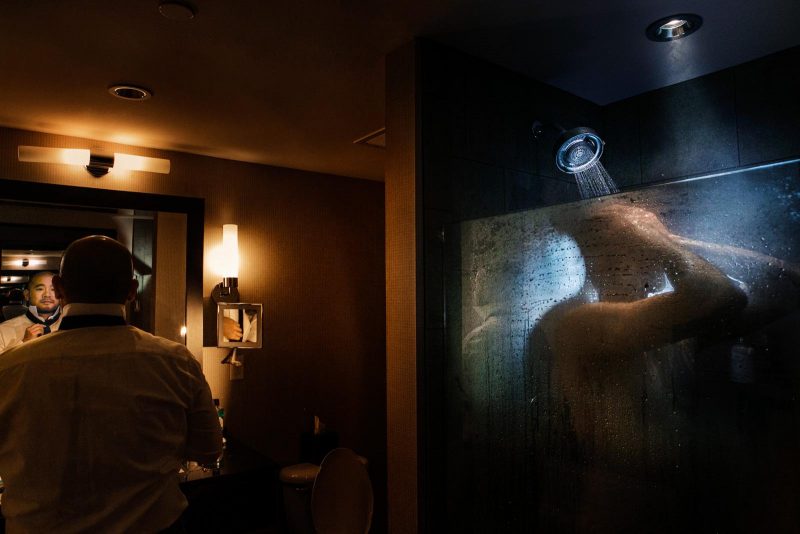
Alan Law:
Those are good. By the way, do you shoot solo for your weddings or do you always have a second shooter or did you do a mix or how’d you do it?
Marissa Joy Daly:
I almost always shoot with a second shooter except for very small intimate wedding. So elopements or weddings, maybe less than 60 people I’ll shoot alone. Right? Yeah, sometimes like I, the wedding I shot in Montreal, I was about 30 person wedding and I shot that alone. But I almost always have a second shooter. I like it for the obvious reasons of having the coverage. And then I also liked the comradery. Being able to share the day with somebody else who’s going through the same thing and I usually shoot with similar people often. And so it’s just nice just to kind of get back together with the same people.
Alan Law:
Oh, that’s cool. Yeah, definitely. That’s cool. Do you know, I need to do it because I’ve only ever shot solo I’ve only ever shot solo. So yeah, I need to try it.
Marissa Joy Daly:
Good for you. You’re probably a better photographer because of it.
Alan Law:
Oh no, I don’t think so. I don’t think so at all. No, and a lot of people who have seconds, I understand how it can be so good for you to get the kind of more creative shots as well when you’ve got someone, you know, kind of backing you up in a way.
Marissa Joy Daly:
Yeah. It’s giving me a little bit more freedom. Especially now where I feel like I can take that step, you know, I can say, okay, you get the safe shot, I’m going to try something different. And sometimes it doesn’t work and sometimes it does, you know? So just, you know, and oftentimes it’s just shooting a lot, not putting your camera down and just getting lucky.
Alan Law:
No, I guess that’s true. Yeah. Do you shoot as much as Lanny and Erika? Cause I know they shoot quite a few, don’t they?
Marissa Joy Daly:
Yeah, I do shoot a lot. I shoot a ton. And probably one of the most valuable things I’ve learned from them is they don’t put their camera down, especially in between moments. That’s one of their biggest thing is they shoot through moments. So, you know, if the bride puts her dress on and you’re shooting that and then it’s done and you’re, you know, moving on it’s best to even like, just keep going with the moment. What’s going to happen after? And a lot of times that’s like when the good stuff happens you know, the mom will gives her a hug or, you know, or she’s looking at herself in the mirror, you know, something like that. And so yeah, so I try to just keep shooting through the moments.
Alan Law:
That’s great. I think honestly again, is absolutely brilliant advice. It really, it really is. I’m sorry. We’ve not really talked about on any podcasts interviews, but I think it’s an interesting thing is to do with the client meetings at all. I mean, do you meet your clients in person or is it generally over Skype? Do you have any advice about client meetings at all?
Marissa Joy Daly:
It depends. I actually don’t shoot too many local weddings here in Los Angeles. I do a lot more… sometimes they’re destination weddings for me, that sometimes is where they live. But a lot I will try to do a Skype or zoom. I always call my clients pretty much as soon as I get the inquiry, I send them my pricing, I send them examples of two full, most recent weddings I’ve shot. I try to schedule a call or a Face Time if I can’t meet up with them in person. I have them fill out like a little worksheet, almost like a questionnaire so I can get to know them a little bit better.
Alan Law:
Oh before the meeting or before the meeting?. Yeah. Wow. That’s cool. That’s good. Yeah.
Marissa Joy Daly:
Yeah. I asked them just, you know, how did they meet, how did the proposal happen? What do you guys do for work? Just so I have a little bit more understanding of, you know, where they’re coming from, what are they envisioning for their wedding? Like what’s important about photography for them? And I think it’s good cause it gets them thinking about it as well. So that way when we chat, you know, they have a little bit better understanding of how they want to convey what they want out of their photography coverage.
Alan Law:
Right, right. Yeah. That’s good advice actually. And that’s really good advice.
Marissa Joy Daly:
It’s worked so far.
Alan Law:
And in terms of marketing in general and kind of getting yourself out there what’s been the most effective for you, do you think?
Marissa Joy Daly:
So I’m probably not the best on this one because I don’t really advertise anywhere. Luckily I think just word of mouth has been pretty good for me and then just referrals. So a lot of the weddings I shoot you know, I’ll shoot a wedding and then the bridesmaid from that wedding will get married in a year or two and then she’ll hire me for her wedding or Facebook has been great. You know, if the client posts photos from the wedding, that just gets a lot of exposure for me because people see those images and then they’ll contact me to say, Oh, I’m friends with, you know, your past bride and saw they were on Facebook and love those pictures, you know, just wondering you know, if you’re available. So
Alan Law:
Do you provide like kind of lower res images when you deliver clients specifically for people to put on social media and things?
Marissa Joy Daly:
So I do both. They have the ability to download website images and high resolution.
Alan Law:
All right. Cool. Okay. And what kind of client gallery system do you use?
Marissa Joy Daly:
Right now I use pixieset but I’m thinking about switching, which sounds bad, but I’ve heard Pic-Time has been really great with campaigning.
Alan Law:
I use Pic-Time.
Marissa Joy Daly:
Do you really?
Alan Law:
Yeah. But is really good and it looks really nice and a great team.
Marissa Joy Daly:
Yeah. They seem like great people there. You know, it’s a beautiful design and I’ve just heard. Yeah, great. I’m not very good with like in person sales or anything like that don’t ever ask me about it because I’m terrible. And I’ve just heard people really rave about being able to get great print sales from pic time; their campaigning and their promotions and stuff like that. So I’m entertaining switching.
Alan Law:
Yeah, honestly. Yeah. You should give it a go. Obviously I don’t have shares in their company, but it’s really good. It’s really good. It’s a great ability for clients to make their own albums, if you want to let them do that as well. You know, it’s a really nice system. Yeah. It’s really nice. Would you have any advice for people who’ve been shooting maybe for quite a few years, but feeling, you know, maybe a bit tired of their work or just, they feel like their career is not in the place where they want it to be?
Marissa Joy Daly:
Yeah. I mean I think we can all relate to being there. At some point in our life, if is not multiple times. For me with whenever I feel like I’m in a rut I do a couple of things. I often go to a museum because I feel like seeing artwork that’s not photography can inspire you in a different way. So I like doing that and then I like being part of a photography community, whether that’s someone local to you, just like a little meet up with your fellow local photographers or going to a workshop or I went to WPPI in February.
Alan Law:
Oh, I was there as well.
Marissa Joy Daly:
Oh no, I missed you. You know, I hadn’t been in like six years. And so I went and I got to meet people I’ve always wanted to meet, and just being amongst people who go through the same thing as you makes you feel not so alone and just to say, okay, what I’m feeling is normal and a lot of people are going through this and you know, what can I do to get myself back on track or reinspire or yeah, I mean, I just think the more support you have from a community is, you know, better. So and even like the online Facebook groups, you know, people are very supportive of just saying, okay, I’m trying this out and it’s not working for my business. What do you guys suggest? And people will comment and be very helpful.
Alan Law:
That’s so true. We are lucky in our kind of industry, how generally nice and supportive and open people are. We really are.
Marissa Joy Daly:
Yeah. And even now, especially with the quarantine and people giving away free education and free workshops online, I mean, that’s just been a really beautiful thing.
Alan Law:
That’s true. Cool. And really great advice. Cool. Oh Marissa I think we’ve got time just for one more question. This has gone really quickly, I think we’ve got time for one more question. So other than photographic skill, what skills or attributes do you think wedding photographers should have?
Marissa Joy Daly:
Ooh, that’s a good one. I think compassion and empathy, you know, I will say after… and patience. I mean, I think it’s, you’re not, like I said before, you’re not just a wedding photographer. You’re often a planner. You’re helping them out through the day. Sometimes it’s very chaotic and you have to calm them down and I know perhaps some more documentary photographers wouldn’t agree with that cause they tend to not want to be seen or be talked to at all because they just want to document what’s going on. But for me, I wouldn’t consider myself a hundred percent a documentary photographer because I do get involved in it.
Alan Law:
Oh, that’s great. Yeah. But there’s no right or wrong way. You can still be documentary and still be talking to your clients and helping them out though.
Marissa Joy Daly:
Yeah. Yeah. And I’ve, you know, I’ve listened to some photographers who are purely documentary in there. They say, you know, will you tell your clients to move here or move there? And they say, no, you know, it’s just how it is. And, but a lot of times with my clients, it’s like I think they know the images that they want So they’ll just say, should I get over, you know, should I get ready over here. And I’ll say, you know, whatever you want, but they kind of want my feedback and they want the guidance and so I want to make sure that they’re feeling good and of course I’d love to get, you know, the photo in a better light. So I don’t mind once in a while kind of stepping in and saying, hey, why don’t you go over there? But yeah, I think also being on the other end, being a bride recently yeah, I think what I really loved about my photographers were them getting really into the moments. Not stopping. And they made sure I was okay as well. You know, they would help me out too. If I needed someone, help me with my shoes or you know, stuff like that. But they have a level of a friendship. It’s a familiar friendship feeling even though I don’t know them really well. And I think that’s great to build that relationship with your clients, even if you’ve never met them before. It’s just putting them at ease.
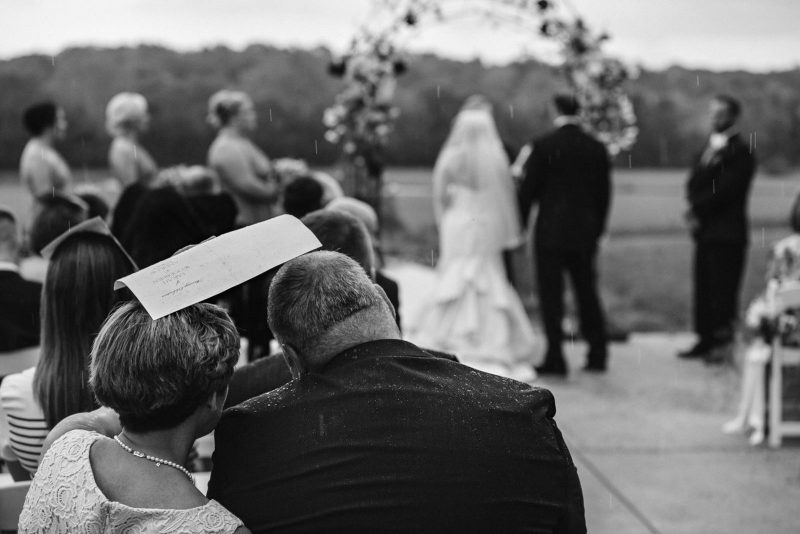
Alan Law:
Oh, that’s so important especially when you’re with them virtually all the time at a wedding and so close to them. It’s so important.
Marissa Joy Daly:
Yeah, yeah. I mean, I had a bride, they were doing an outdoor wedding and it started monsooning like down pouring. Like it was just awful. And they had to move everything inside into this like crappy cabin and it was tight and the lighting was awful and she was just beside herself, you know? And I went in there and I said, don’t matter what, you’re getting married. It’s going to be beautiful. And I calmed her down as much as I could. And later she told me, she said, you’re the reason why I was able to go through with it. You know, having you there made me feel so much better. And to be able to provide that for your clients too, I think is very important.
Alan Law:
Yeah. That’s invaluable. Isn’t it? That’s gorgeous. It’s so nice. Oh, Marissa. That’s awesome advice. And Oh, I just really enjoyed talking to you. Thank you so much.
Marissa Joy Daly:
Thank you. You have amazing questions.
Alan Law:
Oh no. You have amazing answers. So that was awesome. Thank you so much, honestly, that was really brilliant. Anyone’s listening now, you know, while running, do head to the site and I’ll show lots of images of your work and links to your website and that specific reportage award we spoke about as well. And yeah, honestly, thank you so much.
Marissa Joy Daly:
I appreciate it. Thank you for having me.
Alan Law:
Well, thank you. You stay safe and hopefully I’ll meet you some other time Maybe at WPPI at the time if you go,
Marissa Joy Daly:
Exactly, I hope so. I’m looking forward to it.
Alan Law:
Thank you so much Marissa.
Marissa Joy Daly:
Thank you.
***********************************************************
We hope you enjoyed our Marissa Joy Daly interview! Check out more of her work on her website or here on her This is Reportage profile.
Interested in joining us? There are lots of benefits to membership, including 78 entries to our Awards each year, an unlimited number of images on your profile, exclusive access to hours of educational videos from some of the world’s best documentary wedding photographers, and more…
